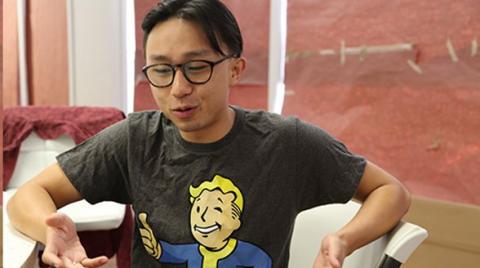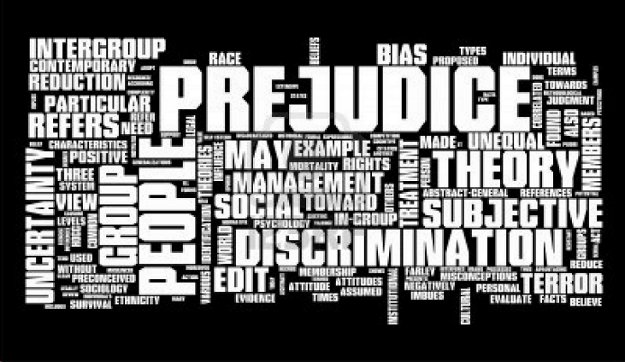When Hate Hits Home

From our content partner New America Media:
SARATOGA, Ca. – In 2012, Raymond Ho was just entering college, his mind abuzz with new ideas and the prospect of new experiences. During his first week he met up with another San Jose native, someone Ho says “had the same questions I did.”
The pair became fast friends, and spent the next three years as college roommates. Their bond was fostered by frequent exchanges that moved from the political to the personal.
“We always had these great conversations,” recalls Ho. “He was definitely more conservative … but I respected his ideas.”
Then came 2016.
As the presidential race heated up, Ho says his friend (whose name Ho asked be withheld for privacy reasons) began to echo some of the more toxic rhetoric coming out of the Trump campaign. It began with comments about undocumented immigrants, or about women. Over time, their meetings grew more tense, their differences more stark.
“At some point there was no logical basis to our conversations – they just became a clash of values,” says Ho. “They never ended well.”
While Ho eventually graduated, his friend – who was then going through bouts of depression and anxiety – dropped out and soon after took up a welding job. He would often complain to Ho about being “dealt a bad hand.”
Like millions of Americans, Ho’s friend found in Trump a champion for his frustrations. Still, despite their deepening political divide, the two would meet on occasion. The ties of their friendship, though strained, were not completely severed.
That changed with the bloody events in Charlottesville.
“After Charolttesville, he posted an image of a white polo and khakis that he owned on his Facebook page,” says Ho, “with the caption ‘Oops.’” The outfit became a social media meme after the violent clashes between neo-Nazis – many dressed in the same white polos and khakis – and counter protesters in early August.
Ho believes the post was a signal of his friend’s sympathy – if not identification – with the white nationalists.
When your world is turned upside down
It is easy to forget when viewing images of racial strife that the deepest divides are often between intimates, not strangers. For those affected, the experience can change their perception of everything they once took for granted.
Growing up, Ho had always seen San Jose and the wider Silicon Valley as cosmopolitan, sophisticated and comfortable in its diversity -- as was he. Now he is no longer certain.

"People think this racial hostility is far away," says Ho. "But I have seen it up close."
Earlier this year, Ho was standing with friends outside a bar in Campbell, an affluent suburb of San Jose. The only Asian in the group, he says a young white woman claiming to be the daughter of a local official, accosted him, hurling racial epithets and telling him he didn't belong here.
"She called me a small d***k Asian, made fun of my eyes and told me to go back to where I came from," he recalls.
He was too shocked to respond. None of his friends stepped forward to defend him.
Later that night, he says, "I began to feel ashamed of being Asian."
Until recently, Ho never saw his racial identity as something that set him apart. If anything, he felt "too American to be Chinese" and thus did not quite fit in with Silicon Valley's immigrant Chinese community.
Now he wonders whether "I'm too Chinese to be American."
His recent encounters have also made him question those around him, strangers and friends alike. "The other day at a fast food restaurant, I began to wonder what the people around me were actually thinking," he says.
Looking for answers
The effect has also rippled out to his family.
Ho’s mother, Jean, runs a Chinese-language news outlet that caters to the immigrant Chinese community in and around San Jose. She says her son fell into a depression after these encounters, feeling the walls of his social world turning in on him.
“I weakly argued that this person at the bar, these people at Charlottesville do not represent the majority of the citizens in the United States,” she wrote in an email. “My son looked at me, shrugged, and left the house. I wished I had an answer for him.”
She added that her own “faith” and “trust” in the people around her has begun to erode. On an elevator recently after covering a local news conference, a man next to her peered at her nametag and asked – in a tone she still cannot decipher – “So, you are news for Chinese?”
She recalls wondering whether he was making fun of her for being Chinese, or was just making friendly conversation. “There were a thousand emotions surging through my mind at that moment: insecurity, doubts, and most alarming of all, fear.”
She adds, “I have lived in the U.S. for 38 years, never in my life have I felt this way.”
Like his mother, Ho is looking for answers, trying to make sense of the new reality that has taken shape around him. Of late he has been busy working with a partner to open a Chinese-style noodle house in nearby Saratoga, but says he has thought of other endeavors, including a line of fashion that blends American styles with more traditional forms of clothing from his parent’s native Taiwan.
“There are people who want to draw the lines, and play up the divisions,” he says. “I want to make clothing that shows how it all fits together.”
This story was produced through a partnership with New America Media and ProPublica’s Documenting Hate Project.
From our content partner New America Media






























































































































































































































































































































